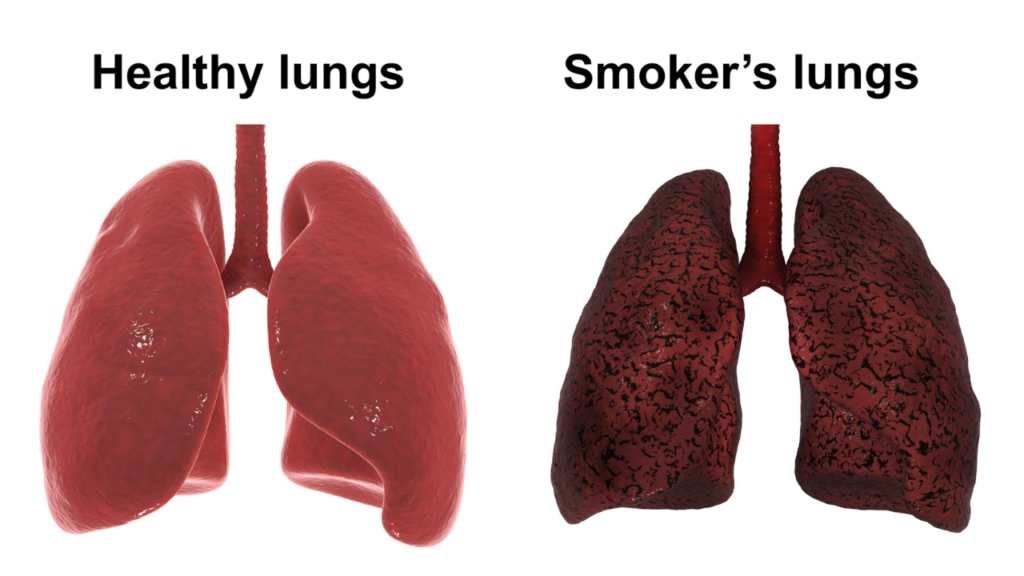Quitting smoking is difficult, but living with damaged lungs is much worse. It’s possible to improve lung health and cleanse the lungs after quitting smoking. To do this, it’s important to avoid things like cigarette smoke & air pollution. Other healthy habits like regular exercise and eating well can also help. Continue reading to understand how to clean lungs after quitting smoking
If a person has been exposed to lung pollutants, they may feel congested or inflamed in their chest area due to mucus buildup in their lungs. There are techniques that can help clear the lungs of mucus and irritants, reduce chest congestion & inflammation, as well as open up airways so that lung capacity increases.
These steps all work together for better overall lung health following quitting smoking.
Table of Contents
ToggleWhat are the impacts of smoking on the lungs?
Your lungs allow oxygen to enter your body, which is necessary for all your organs & cells to function properly. Without enough oxygen, you are more likely to get sick or develop cancer. Furthermore, oxygen can enhance brain performance, promote positive emotions, & give you energy. Additionally, it helps strengthen your immune system & decreases stress levels.
Smoking can damage your lungs, making it hard for them to work properly & get enough oxygen to your body’s cells & organs.
Each time you take a puff from a cigarette, you’re inhaling over 7,000 toxic chemicals. These toxins can damage your lungs, give you a sore throat & make it harder to breathe. Luckily, when you quit smoking your risk of these problems will lower over time & you’ll be less likely to get sick.
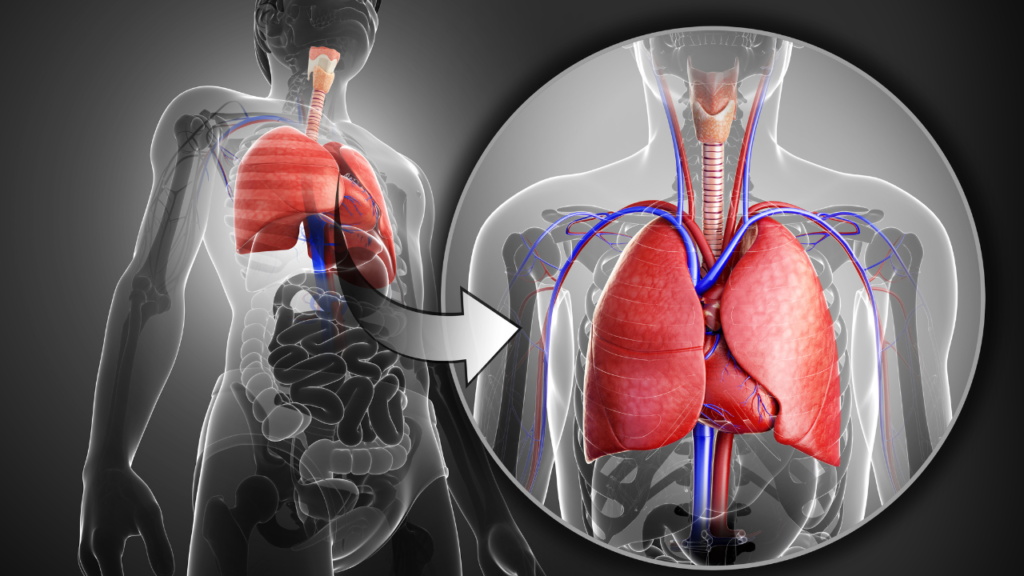
What health issues are caused by smoking cigarettes?
Smoking can lead to severe lung issues, including emphysema, COPD & lung cancer. The majority of COPD cases are linked to smoking. Smokers have a 20 times higher risk of developing lung cancer than non-smokers.
Smoking can increase the risk of other types of cancer, such as larynx, trachea, bronchus & oropharynx cancer. These cancers affect the voice box, windpipe, airway to the lungs & the entire back part of the mouth.
Cigarette smoking is the main cause of preventable deaths in America, accounting for 1 out of every 5 deaths. Not only can it cause different types of cancer, but it can also increase the chances of having a heart attack or stroke by two to four times.
Smoking can lead to a variety of complications, such as fertility issues, tooth decay, & diabetes.
What are the effects on the lungs when someone stops smoking?
If you smoke, quitting now can help your lungs start to heal. You can reverse the effects of smoking if you stop today.
After quitting smoking, your blood’s carbon monoxide level will return to normal within 12 hours. After one year, your risk of heart attack will significantly decrease. Within two to five years, your risk of stroke can be the same as that of a non-smoker.
After quitting smoking, your risk of developing certain cancers (throat, mouth, esophagus & bladder) decreases by 50% after 5 years. The greatest benefit comes at the 10-year mark – your risk of dying from lung cancer is cut in half.
After quitting smoking, you can experience a range of benefits. Within 20 minutes of your last cigarette, your heart rate & blood pressure will be lower. In two weeks to three months, your lung function will improve. The first year after quitting can also bring a decrease in coughing & breathlessness, plus an improvement in the lung’s ability to clean themselves & stave off infection.
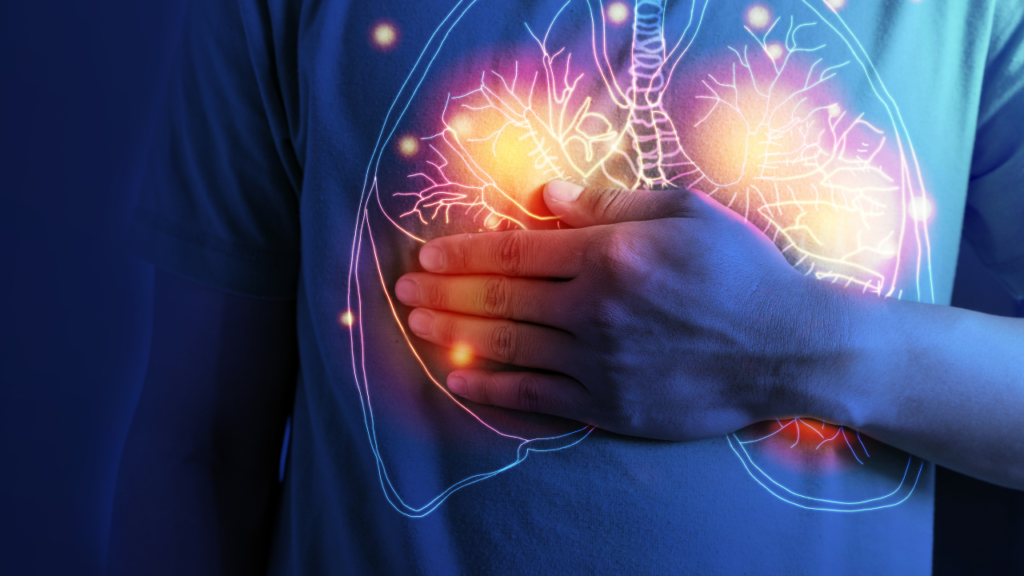
How to clean lungs after quitting smoking
After you quit smoking, your lungs need time to recover. However, the benefits start right away – only 12 hours after your last cigarette, the carbon monoxide levels in your blood return to normal, allowing your body to get the oxygen it needs.
Healthy cilia, which are like tiny hairs, are important for keeping the lungs healthy since they remove dust, mucus, & other impurities. Quitting smoking can lead to an improvement in lung health in as little as two weeks to three months; however, it can take up to nine months for the cilia to fully repair.
Quitting smoking can be challenging, & healing your lungs will take time. It’s normal to feel chest discomfort, cravings, coughing & an increase in mucus production as you work towards being smoke-free. However, there are ways you can give your lungs the best chance of recovering fully.
Are there ways to clean the lungs naturally after quitting smoking?
Once you stop smoking, you can help repair your lungs using natural methods.
- Consume more foods that have anti-inflammatory & detoxifying qualities.
- Limit your exposure to pollutants.
- Doing deep breathing exercises to practice.
- Exercising on a regular basis.
Your lungs can heal & regenerate themselves after you quit smoking. To help them recover faster, there are certain lifestyle choices you can make.
Clean Your Lungs With Diet
Avoid Certain Foods
Eating certain foods can lead to more mucus production, which can make it harder to clear your lungs after quitting smoking. While these foods may be nutritious, it may be a good idea to monitor your consumption of them.
- Examples of dairy products include milk (skim, 1%, 2%, whole, & raw organic), cream, yogurt, cheese, butter, & kefir.
- Avoid eating candy bars, pies, cakes, pastries, taffy, gelatin & other sugary sweets.
- Processed foods include cured meats like jerky, bacon, ham, salami, sausage, hot dogs & canned meat.
- Reduce your intake of coffee, teas & sodas that contain high levels of caffeine. Instead, drink plenty of water
- Packaged convenience foods include frozen foods.
- It is best to avoid highly processed meals, such as fast food, vegan or vegetarian processed foods, as well as meat & dairy substitutes.
Foods that reduce inflammation.
Inflammation of the airways can lead to difficulty breathing, a feeling of heaviness & congestion in the chest. Eating foods that reduce inflammation can help relieve these symptoms.
Foods that can reduce inflammation include:
- turmeric
- walnuts
- blueberries
- cherries
- beans
- leafy greens
- lentils
- olives
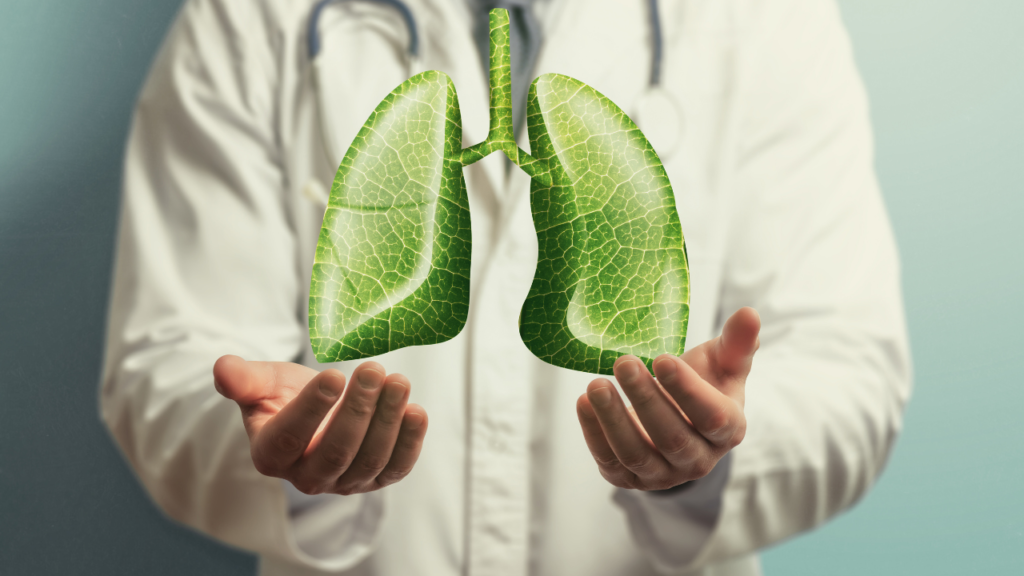
What Foods Should I Eat?
Eating foods that have anti-inflammatory properties may reduce inflammation in the body, although there is no scientific evidence to show that it can prevent lung inflammation.
- Pineapple contains bromelain, which helps reduce inflammation & improve lung elasticity.
- Citrus fruits & berries, like oranges, lemons, limes, kumquats & blackberries, are packed with antioxidants & anti-inflammatory compounds.
- Adding a teaspoon of honey to your diet every day may help clear pollutants from your lungs, according to research.
- Radishes can help reduce mucus & congestion in the lungs. This includes varieties such as horseradish, red, & daikon.
- Examples of leafy greens and herbs include celery, bamboo shoots, Brussels sprouts, asparagus, cauliflower, broccoli, thyme, rosemary, and oregano.
- Spices like ginger, garlic, onions & turmeric are great natural remedies for reducing inflammation.
What are some drinks that can help cleanse my lungs?
Keeping your lungs healthy requires staying hydrated. Drinking plenty of water can help thin the mucus in your lungs, making it easier to expel when you cough. Additionally, drinking warm liquids like tea can also help to thin mucus.
Here are some drinks that can help cleanse your lungs:
- Mix honey with hot water.
- Drink green tea.
- Drinking water with lemon.
- Drinking carrot juice.
- Ginger & Turmeric are spices.
- Smoothies made with oranges, bananas, spinach, & berries are a good source of potassium.
Preventing Pollution to Purify Your Lungs
If you quit smoking, it will be easier to clear your lungs if you avoid exposure to other pollutants.
Stay away from other smokers.
Breathing in secondhand smoke can irritate your lungs & cause cravings. It is best to avoid other sources of smoke, such as fires.
Make sure your home is well-ventilated.
Using an in-home air purifier can help reduce allergens & give your lungs access to clean air. House plants such as spider plants or peace lilies are great for air purification too. Lastly, leaving your windows open at night will allow natural fresh air from outside to flow into the room.
Avoid using cleaning products that contain harmful chemicals like ammonia, which can irritate the respiratory system.
How to Improve Your Lungs with Breathing Exercises
Diaphragmatic breathing exercises are recommended by many pulmonary rehabilitation specialists to help the lungs regain their normal functioning. Those who have recently quit smoking may experience pain in their lungs, & these exercises can help to cleanse them.
Breathing with your lips pressed together.
Relax your head, neck & shoulders. Take a slow breath through your nose for 2 seconds. Then slowly breathe out through your mouth for 4 seconds, pursing your lips to restrict the airflow. Exhale slowly – it is important to do this over a longer period of time.
The advantages are:
- It helps you breathe better by widening your airways.
- Replaces old air in the lungs with fresh air.
- It encourages relaxation.
- It helps with breathing difficulties.
Removing mucus from the lungs.
Postural drainage is a technique used to clear mucus from the lungs by changing positions to take advantage of gravity. This can help improve breathing & reduce the risk of lung infections.
The techniques used for postural drainage vary depending on the position taken.
Lie on your back.
- Lie on the floor or on a bed.
- Place pillows under the hips to ensure that the hips are higher than the chest.
- Breathe in through your nose & out through your mouth, making sure the exhale is twice as long as the inhale. This type of breathing is called 1:2 breathing.
- Continue for a few more minutes.
On your side
- Lie on your side with your head supported by an arm or pillow.
- Put pillows under the hips.
- Breathe in for a count of one & out for a count of two.
- Continue for a few more minutes.
- Repeat the same process on the other side.
Lie on your stomach.
- Place a stack of pillows on the floor.
- Lie down with your stomach on the pillows. Make sure to keep your hips higher than your chest.
- Place the arms beneath the head for support.
- Inhale for one count, then exhale for two counts.
- Keep going for a few more minutes.
Breathing from the Diaphragm
Belly breathing, also known as pursed-lip breathing with diaphragm exercise, is a technique that helps improve lung health.
Place one hand on your belly & the other on your chest. As you inhale, feel your belly rise up with your breath, keeping the hand on your chest still. When you exhale, breathe out slowly through pursed lips while pushing with your hand on the belly. Repeat this exercise three to ten times.
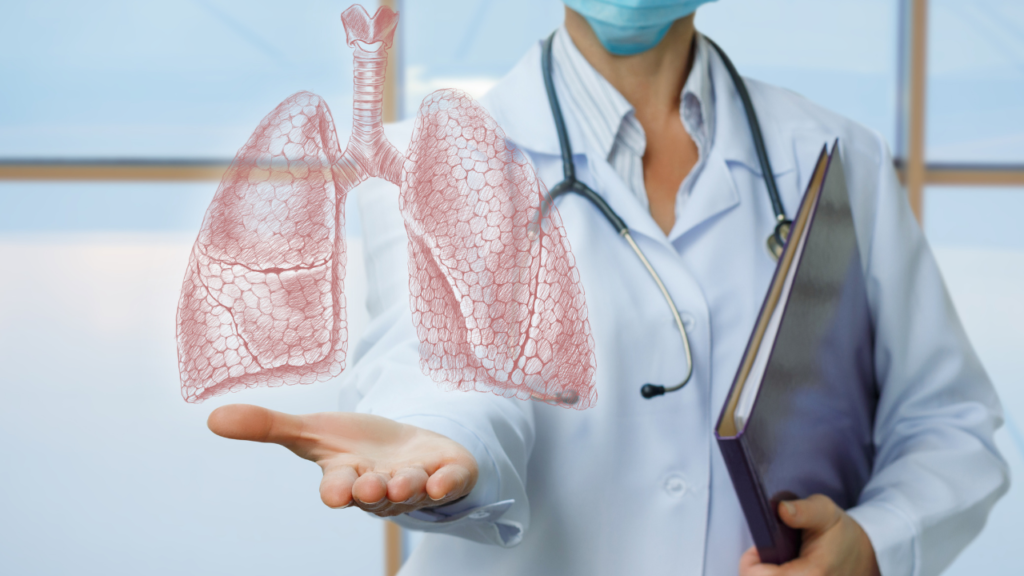
What are the benefits?
- Strengthening & increasing the length of respiratory muscles.
- Improving cardiovascular & respiratory health.
Coughing that is controlled.
Coughing helps rid the body of toxins that have been trapped in mucus. It does this by pushing the mucus up through the airways & out of the lungs.
Doctors may recommend that people with lung conditions, like COPD, do an exercise to help clear their lungs.
How can people clear their lungs of excess mucus?
- Sit in a chair with your shoulders relaxed & both feet flat on the floor.
- Crossing the arms over the stomach.
- Breathing in slowly through the nose.
- Lean forward and push your arms against your stomach while exhaling slowly.
- Cough two or three times while exhaling with your mouth slightly open.
- Taking a slow breath in through the nose.
- Rest & repeat as needed.
Exercising to Clean Your Lungs
Staying physically fit is essential for having a healthy body. Exercise has many benefits for the body & mind, such as the release of endorphins & dopamine which can help with nicotine cravings & mood swings during withdrawal. If you haven’t done much physical activity before, start slowly.
Yoga is a great way to exercise & help your lungs after quitting smoking. It combines breathing exercises & full body workouts, both of which promote good lung health.
Coughing during exercise is normal, especially if you smoke or are not physically fit. Exercising can help to clear out phlegm & mucus from your lungs, so keep going.
Can ex-smokers restore their lungs to normal after quitting?
Smoking, especially in the long-term, causes severe & often irreversible damage to the lungs. It also increases your risk of developing lung cancer & Chronic Obstructive Pulmonary Disease (COPD). Although there are techniques that may help repair some of this damage & improve lung health, quitting smoking is the best way to protect your lungs.
Quitting smoking now can help your lungs heal over time, however it may take years or even decades for them to get back to normal. The longer you keep smoking, the less likely it is that your lungs will repair themselves.
Get Help to Stop Smoking
If you’re trying to quit smoking, a doctor can help. Getting support from a doctor usually leads to better results than going it alone. Your doctor can prescribe medications to help you quit & create an individual quitting plan tailored to your health & lifestyle.
What are the advantages of stopping smoking?
When you quit smoking, your quality of life will improve immediately & there are many benefits that come with it.
After you quit smoking, your sense of smell will gradually come back & food will start tasting better. Additionally, people around you may notice that the odor of smoke is no longer present in your hair or clothes. Not only will this make you smell better, but it can also make you look more attractive since your nails & teeth won’t be stained yellow & your skin & hair may improve in appearance.
Breaking the Addiction Cycle
Once you quit, your brain’s nicotine receptors will return to normal within a month, which will break your addiction.
Improved blood flow.
After quitting smoking, your blood circulation will improve within two to twelve weeks. This makes exercise easier & reduces your risk of having a heart attack.
Improved taste & odor.
Quitting smoking can have an immediate effect on your senses of taste & smell. After only two days, the nerve endings in your nose & mouth will start to repair, causing your sense of taste & smell to improve.
More energy.
In addition to better breathing & exercise, the extra oxygen in your body will give you more energy.
How can I strengthen my immune system?
Quitting smoking can help your immune system by improving circulation, increasing oxygen levels, & reducing inflammation. This makes it easier for your body to fight off colds & illnesses.
Cleaner teeth & a fresher mouth.
Quitting smoking can have an immediate impact on your oral health. Within a week, you’ll start to notice whiter teeth, fresher breath, & a reduced risk of infection.
A decreased chance of developing cancer.
After quitting smoking, it may take a few years, but your risk of getting certain cancers will be reduced.
Cancers of the lung, esophagus, kidney, bladder & pancreas.
Quitting smoking can help you save a lot of money, & make you feel more energetic & less tired. You won’t need to take breaks to go outside & smoke anymore.
Overview
Toxins from cigarettes & air pollution can enter the lungs & affect the entire body. If these toxins get stuck in mucus, it can be hard for the body to clear it from the lungs & airways, which can lead to poor respiratory health.
People with damaged lungs may find it difficult to clear mucus from their system. Conditions such as COPD, asthma, & cystic fibrosis can lead to an excessive production of mucus or thickened mucus that can block the airways in the lungs.
Postural drainage, chest percussion, & breathing exercises can help clear mucus from the lungs & airways. Steam therapy may provide temporary relief for people with congestion or chronic respiratory issues.
Making lifestyle changes such as exercising regularly, drinking green tea, & eating anti-inflammatory foods may help improve lung health & reduce the risk of certain health issues.
Phlegm & mucus are usually signs of a minor issue which can be taken care of at home. Home remedies or over-the-counter medications can help relieve the symptoms.
Phlegm & mucus may not be pleasant, but with proper care they won’t cause serious harm.
If you have phlegm, mucus, or other related symptoms, it is important to see a doctor. Treatment for allergies or antibiotics may be needed to address the cause of your symptoms.
